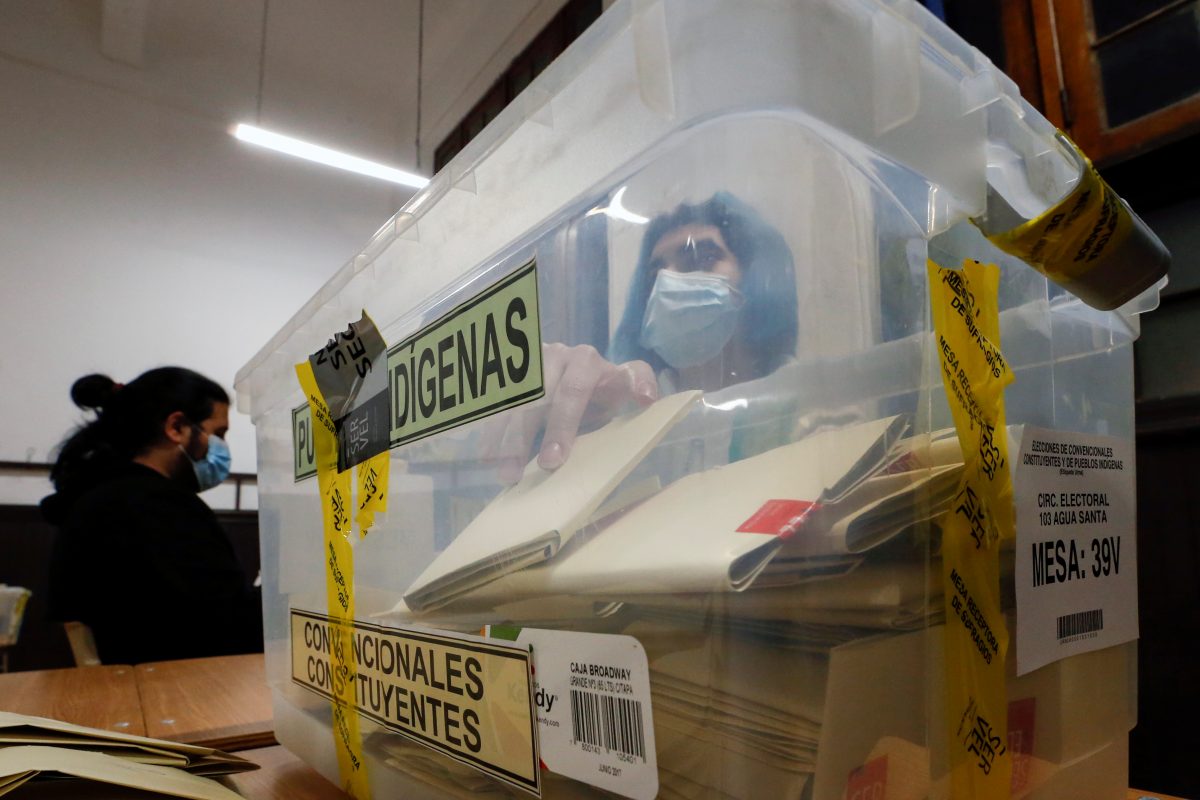SANTIAGO, (Reuters) – Chile’s center-right ruling coalition suffered a shock loss yesterday night after failing to secure a critical one-third of seats in the body that will draft the country’s new constitution.
With 90% of the votes counted, candidates backed by President Sebastian Pinera’s centre-right Chile Vamos coalition had won only a fifth while independents picked up the most votes. New proposals will require two-thirds approval and without a third of the delegates, the government will struggle to block radical changes to the constitution unless it can forge new alliances.
The result and defeats for Chile Vamos candidates in mayoral, governatorial and municipal elections held at the same time bode ill for the ruling coalition ahead of general and presidential elections in November.
The vote to pick 155 citizens to rewrite the constitution was borne from fierce protests that erupted over inequality and elitism in October 2019. The current constitution drafted during the 1973-1990 dictatorship of Augusto Pinochet is widely perceived to favor big business over the rights of ordinary citizens.
Until recently, Chile Vamos had been confident its candidates would win at least a third of the vote.
Pinera said his government and other traditional political parties should heed the “loud and clear” message that they had not adequately responded to the needs of citizens.
It was “a great opportunity” for Chileans to build a more “fair, inclusive, prosperous and sustainable country,” he added.
CNN’s local channel in Chile projected independents would win 45 seats, Chile Vamos would gain 39, the centre-left 25, the far-left 28 and a small coalition would take one seat. Seventeen seats have been reserved for members of Chile’s indigenous communities who are not mentioned in the present charter.
Pinera cautioned, however, against extreme changes which some fear could threaten Chile’s status as one of the wealthiest, most stable democracies in Latin America.
Some of the more controversial ideas being advanced for the new constitution include potential changes to private land and water rights as well as to employment legislation that could threaten the interests of traditional investors.
Gabriel Boric, a leading member of Chile’s far-left Broad Front coalition, said the result paved the way for major changes in Chile, the world’s largest copper producer.
“We are looking for a new treaty for our indigenous populations, to recover our natural resources, build a state that guarantees universal social rights,” he said. “We’re going to start from scratch and build a new Chile.”
More than 1,200 people put themselves forward to draft the new charter, including actors, writers, civil society activists, politicians, TV hosts and fashion models.
Francisca Linconao, a “Machi” spiritual leader of the Mapuche indigenous people who was jailed for alleged terrorist links before later being absolved of charges and released, was among those winning a seat.
Delegates will spend a maximum 12-month period debating and crafting the new text and Chileans will then vote on the final product. If it fails, Chile will revert to the current text.
The new constitutional body is the first in the world to stipulate a roughly equal number of male and female delegates.
Marcela Cubillos, a senior figure in the Chile Vamos coalition who gained a seat, said the right would need to forge new alliances.
“The results that we are seeing today make the construction of these agreements essential,” she told reporters.
The government’s popularity has fallen amid COVID-related poverty and joblessness and due to its attempts to block citizens from drawing down their privately held pensions.






